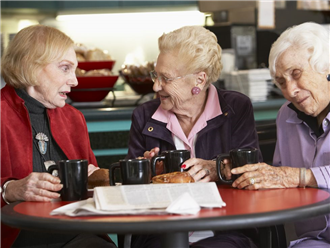
The Elderly and Accidents in the Home
24 April 2018
Family Safety Week
In recent years life expectancy has risen meaning people now reach well into their 80’s and 90’s. A rise in age results in a high risk of accidents. Reports reveal over-65s accounted for 19% of the total number of A&E home accident attendances. 30% of the attendances were due to accidental falls at home*.
What can we do to protect older people from having falls and accidents in the home?
Many prevention methods can be expensive. Stair lifts, remodelling kitchens and bathrooms, and installing safety railings come at a cost. If this is something attainable for an elderly person you know or care for it’s always worth investing in. Not only does it protect the elderly, it gives them a sense of freedom and independence because they don’t have to rely on others to help them.
If remodelling rooms or installing stair lifts are not within your budget there are lots of cheaper alternatives.
1. Remove rugs and discard poorly fitting footwear.
Rugs are a huge tripping hazard. It’s incredibly easy for the elderly to catch their foot underneath both the corner and sides of rugs, especially if they are wearing poorly fitted shoes or slippers. Be sure that if there are rugs in the house they’re down securely and the likelihood of being able to catch on them is highly unlikely, also ensure all footwear is secure and sturdy.
2. Make sure stairs are well lit.
A poorly lit stairway can mean it is easier to miss a step or misjudge foot placement resulting in a fall. Falling down stairs often results in the biggest injury for the elderly. Good quality lighting and sturdy handrails can help avoid this.
3. Bathroom accessibility.
Handrails can be more expensive then pinning down rugs or having good quality light bulbs, but the bathroom is one of the most dangerous places for the elderly. Having a handrail that allows them to get off the toilet themselves and a handrail to step out of the bath/shower with support can save them from many slips and trips. A bathroom mat that suctions down is also advisable, as are bathroom products being in an easily accessible place.
4. Wearable alarm.
If an elderly person does fall or hurt themselves often they can’t get up to call for help. Having a wearable alarm can mean they can alert emergency services or a close relative/ friend if they do fall and need help. It is a small device that hangs around the neck and for those who don’t have constant visitors it can be a lifesaver, especially if they would normally be left for days without someone checking in on them.
5. Kitchen accessibility.
Renovating a kitchen so that foot ladders or reaching up high aren’t needed can come at a cost. Instead, moving things to eye level and heavy items to waist level can result in less injury and easier use. It may mean top shelves go left unused but for the prevention of injury and cost-effectiveness of not redoing the kitchen, it is worthwhile.
6. Other helpful hacks.
- A Kettle tipper can be very useful for those who don’t have a lot of arm strength or are shaky.
- A securely fitted ramp to replace steps at the front and rear of the house can avoid slips and trips.
- Have cordless phones can also avoid wires tangling which lead to trips.
- Capping hot water to a certain temperature can prevent scolding and burns.
- Ensure smoke alarms are on both floors of a two-story house and that they are working; your local fire service will fit fire alarms for free.
- Have carbon monoxide and gas detectors fitted, older people can have a lacked sense of smell making it difficult for them to detect a gas leak.
- Keep floors uncluttered and clear to avoid trip hazards.
For more information or further steps to avoid accidents that cover poisoning and burns head to:
http://www.home-security-action.co.uk/home-safety-for-the-elderly.html
https://www.rospa.com/home-safety/advice/older-people/#what
Sources*:
https://www.rospa.com/home-safety/advice/older-people/
Comments